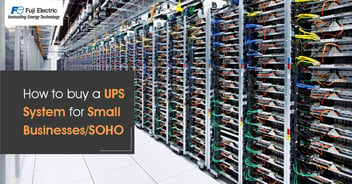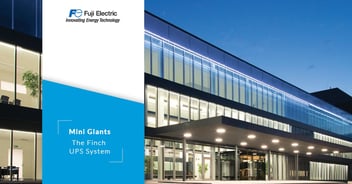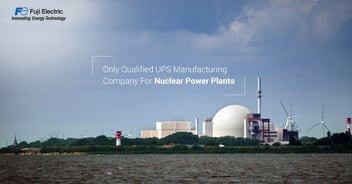Falcon UPS With Lithium-Ion Battery For Resiliency and Ultimate Availability
Post-Covid, organizations become increasingly reliant on IT systems and data to keep their operations running at optimal efficiency and to keep their operation, they are dependent on a reliable power supply, be it any industry. It is clear that the ultimate availability is essential to remain operational and competitive.
We at Fuji Electric are constantly looking for ways to keep abreast with advancements in technology to scale up our solutions for power backup and conditioning. And we are committed to ensuring your critical applications and Li-Ion battery plays a significant role in enhancing system availability by giving extended and reliable power backup to the connected application. Our Falcon range is hot on the heels of UPS advancements worldwide with this objective. The introduction of a lithium-ion battery compatible UPS has proven advantageous in many power climates worldwide, and we have now brought this to our country.
.jpg?width=2500&name=LI-UPS%20(1).jpg)
Lithium-Ion v/s VRLA
The pre-dominant battery technology used for UPS systems was the VRLA or Valve Regulated Lead-Acid Battery. This is like the standard car battery, which is also sealed and is maintenance-free. Lead-acid technology is ideal for periodic cyclic charge/discharge cycles i.e., non-continuous use.
The introduction of the Falcon Family - Lithium-ion battery compatible UPS (uninterruptible power systems) has opened a world of opportunity. This configuration delivers the scalability, flexibility, and intelligence of the Falcon UPS with all the benefits of lithium-ion technology, including longer battery life, reduced size and weight and increased power density.
Our Falcon UPS with a Lithium-ion battery is expected to have twice the battery life compared to a standard UPS system. There are many ways UPS system with a Lithium-ion battery sets itself apart.
This new battery technology brings with it the following advantages:
• A significant reduction in the total cost of ownership of the power infrastructure of equipment.
• A more sustainable method with a reduced footprint on the environment
• A more space-saving product with better utilization of floor space.
• Enhancing the system availability for critical applications such as data centers
• Longer replacement cycle and lower weight in comparison to the traditional lead-acid batteries
• Li-ion batteries have a longer lifespan compared to lead-acid batteries’ three to four years
• Shorter recharge time compared to lead-acid batteries
• Work at higher temperature ranges than Lead-Acid batteries, which means they work well even in harsh environments.
Fuji Electric believes that adapting to market conditions and empowering customers by helping them to improve performance builds stronger relations and enables us to be preferred power partners for customers who are better able to maintain their competitive edge.
 China
China Europe
Europe France
France Hong Kong
Hong Kong Indonesia
Indonesia Japan
Japan Singapore
Singapore Thailand
Thailand USA
USA

